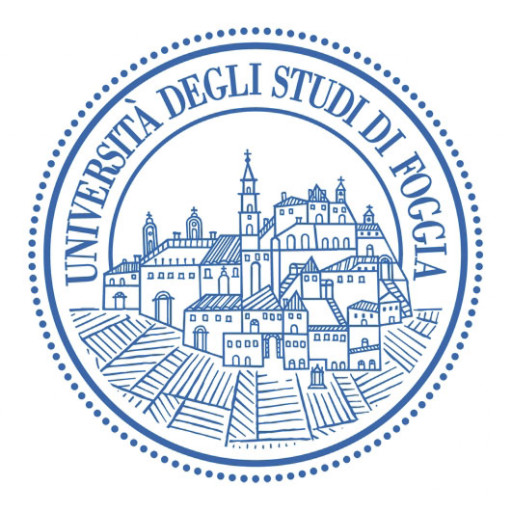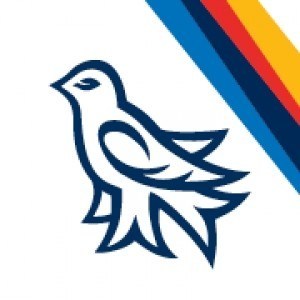Photos of university / #tallinnatehnikakorgkool
The program emphasizes laboratory work, enabling students to develop essential skills in experimental design, data analysis, and scientific communication. Throughout their studies, students will engage in projects that mimic real-world challenges faced by scientists and industry professionals, fostering problem-solving abilities and innovative thinking. The curriculum also covers modern techniques such as DNA sequencing, PCR, microscopy, and bioinformatics, ensuring graduates are prepared for current industry standards.
Moreover, the program promotes an understanding of ethical considerations in molecular research and its societal impacts. Students have the opportunity to collaborate with industry partners and participate in internships, gaining practical experience and networking within the scientific community. The Bachelor of Science in Molecular Life Sciences at the University of Applied Sciences aims to cultivate talented scientists capable of advancing knowledge in molecular biology and contributing to medical, environmental, and biotechnological innovations. Graduates are well-equipped for postgraduate studies or immediate employment in laboratories, pharmaceutical companies, research institutes, and healthcare organizations, making it an ideal choice for students passionate about advancing sciences at the molecular level.
The Bachelor's Degree Program in Molecular Life Sciences at the University of Applied Sciences offers a comprehensive education focused on the fundamental principles and practical applications of molecular biology, biochemistry, genetics, and cell biology. Throughout the program, students gain in-depth knowledge of molecular mechanisms underlying biological processes and develop the skills necessary to analyze, interpret, and manipulate biological systems at the molecular level. The curriculum combines rigorous theoretical coursework with hands-on laboratory work, providing students with a solid foundation in contemporary scientific methods and technologies. Key areas of study include molecular genetics, biochemistry, cell culture techniques, bioinformatics, molecular diagnostics, and biotechnological applications. The program emphasizes interdisciplinary learning, integrating concepts from biology, chemistry, and physics to prepare students for diverse roles in research, healthcare, and biotech industries. Students will have opportunities to work on real-world projects, often collaborating with industry partners or participating in internships that enhance their practical skills and professional readiness. The program aims to foster critical thinking, problem-solving abilities, and innovative approaches to scientific challenges. Graduates of the Molecular Life Sciences program are well-equipped to pursue careers in biomedical research, diagnostics, pharmaceuticals, and biotechnology companies, or to continue their studies at the master's level. Overall, this program provides a comprehensive and practical education designed to meet the demands of modern molecular sciences and prepare students for successful careers in science and industry.
Program requirements for the Bachelor of Science in Molecular Life Sciences at the University of Applied Sciences include a combination of prerequisite qualifications, language proficiency, and specific subject knowledge. Applicants are typically required to hold at least a secondary school leaving certificate that qualifies them for university entry in their home country, demonstrating their foundational knowledge in sciences and mathematics. Proficiency in the English language is mandatory, with applicants needing to submit evidence through standardized tests such as TOEFL or IELTS unless they have completed prior education in English. A strong background in biology, chemistry, and mathematics is essential, as coursework involves complex concepts related to molecular biology, genetics, biochemistry, and biophysical methods. Prior experience or coursework in laboratory techniques and research methodology is highly advantageous but not always explicitly required. Specific admission requirements may include submitting a motivational letter, curriculum vitae, and academic transcripts. Some applicants might also be asked to pass an interview or entrance exam to assess their motivation and suitability for the program. The program's curriculum is designed to provide rigorous training in molecular and cellular biology, preparing students for careers in research, biotechnology, pharmaceuticals, and related fields. Students are expected to complete practical laboratory work, undertake independent research projects, and participate in collaborative activities. Additionally, the university prioritizes applications from candidates demonstrating strong analytical skills, a keen interest in scientific inquiry, and the ability to work both independently and as part of interdisciplinary teams. International applicants should ensure their qualifications meet the university's equivalency standards and may need to provide certified translations of their documents. The university also recommends prospective students review specific course prerequisites and contact admissions counselors if clarification is needed regarding eligibility and application procedures. Overall, successful applicants will possess a solid scientific foundation, excellent communication skills, and a clear motivation to pursue advanced studies in molecular life sciences.
The financing of the Molecular Life Sciences bachelor’s degree program at the University of Applied Sciences is primarily based on a combination of public funding, student tuition fees, and various financial aid options. As a public university, the institution receives substantial support from government sources, which help subsidize the cost of education and infrastructure, thereby reducing the financial burden on students. Tuition fees are generally structured to be affordable for domestic students, with specific amounts varying annually and depending on the student's status (e.g., EU or non-EU students). International students may be subject to higher tuition fees, reflecting different funding policies and agreements.
Students are encouraged to apply for scholarships and grants offered by the university or external organizations to assist with their studies. These financial aid options can be based on academic performance, financial need, or specific criteria such as nationality or field of interest. In addition to scholarships, students can benefit from loan programs designed to ease the cost of education, allowing them to repay their loans after graduation once they are employed. The university also provides work-study opportunities, enabling students to earn income while gaining practical experience relevant to their field of study.
Many students finance their studies through a combination of personal savings, family support, and government-sponsored student loans. The university offers financial advisory services to help students plan their budgets effectively and explore all available funding options. International students are advised to seek additional financial aid or sponsorships from home countries or multinational organizations, as some programs at the university may have partnerships or agreements facilitating financial support. Overall, the financing structure aims to make high-quality education accessible to a diverse student body, fostering an environment where talented individuals can pursue their academic and professional goals without undue financial hardship.
The Bachelor of Science in Molecular Life Sciences at the University of Applied Sciences provides students with a comprehensive education in the fields of biology, chemistry, and related sciences, focusing on understanding the molecular mechanisms underlying life processes. The program prepares students for a range of careers in research, biotechnology, healthcare, and the pharmaceutical industry. Throughout the program, students gain practical skills through laboratory work, project-based learning, and internships, enabling them to apply theoretical knowledge to real-world challenges. Core courses include molecular biology, genetics, biochemistry, cell biology, microbiology, and bioinformatics, among others. Emphasis is placed on developing analytical thinking, problem-solving abilities, and technical competence in modern laboratory techniques. The program also encourages interdisciplinary learning, integrating knowledge from physics, mathematics, and computer science to equip graduates with a holistic understanding of living systems. Graduates are prepared to continue their education in master's programs or to enter the workforce directly, often in roles such as laboratory technicians, research assistants, or quality assurance specialists. The university collaborates with industry partners to ensure the curriculum remains relevant and that students have opportunities for internships and practical experience. The program's learning environment promotes innovation, critical thinking, and teamwork, essential skills for success in the dynamic field of molecular life sciences.









